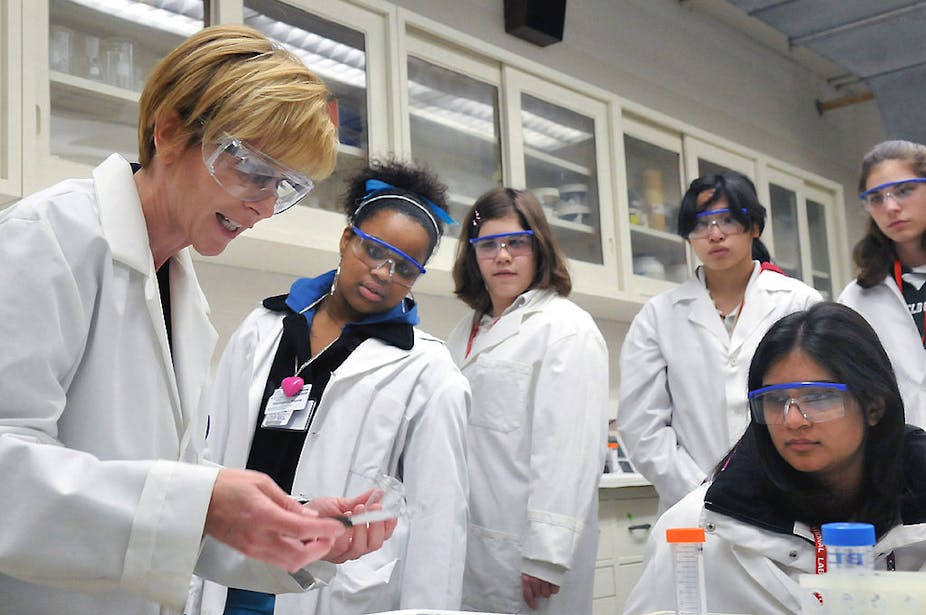The so called “leaky pipeline” of women in academic science, technology, engineering and maths is a big issue, representing a major loss in talent and creativity.
Only 15% of professors in these fields are women and despite drives by politicians, learned societies and individual institutions, we still don’t really know what the problem is or how to tackle it. Often, childcare, career gaps and women’s reluctance to self-promote are identified as issues organisations need to address in order to facilitate women reaching higher academic positions; but are these really women-specific issues?
The demands of childcare are often held up as one of the key roadblocks to the progression of women in academia. However, the idea that childcare is a gender issue reinforces the idea that women should be responsible for the home and the “double burden” felt by many women. The association between women and childcare also means that male academics who want to take paternity leave or work part time for childcare or domestic reasons face similar, if not greater discrimination against doing so. There is even evidence that male scientists regret parenthood decisions more than female scientists.
Childcare and domestic duties are not a gender issue. They are applicable to people of any gender. They do need to be addressed and can be with sufficient political and academic will but the association between them and women is only adding to implicit gender bias. Childcare is a red-herring which at best distracts from, and at worse contributes to, the real biases facing women in science.
Research in business management offers some further insight into why women progress more slowly in their careers, including a tendency to consider themselves less ready for promotion. This may be true but these populations are composed of individuals and individuals don’t always fit with population norms. Some men will also be reluctant to blow their own trumpet and some women will take risks and apply before they are likely to succeed. The effective use of annual reviews and supporting people to successfully apply for promotion, doesn’t need to be exclusive to women, but could support all people in achieving their career potential.
Science covers a huge range of varied disciplines. Trying to apply a one-size-fits all solution to gender imbalance in academia is therefore flawed reasoning. In physics, women appear to be put off before university, with only 21% of bachelor degree entrants being women despite their more successful outcomes, lower drop-out rate and higher proportion achieving first class honours compared to men. But look at biology and the fall in interest in an academic career occurs after graduate study. Women comprise at least half of graduate biology students, but only a fraction of permanent academic staff are women.
Some say women prefer biology to physics because they feel they can make a human difference by working in the field. Certainly personal preference plays a role for all people when choosing a career. However it doesn’t explain the lack of female professors in this subject and it risks hiding the role of more sinister implicit gender biases in preventing women getting to the top. Indeed, the implicit bias remains rife in women and men alike, despite protests to the contrary. This is exemplified in one [study](http://www.pnas.org/content/109/41/16474.full](http://www.pnas.org/content/109/41/16474.full) in which researchers rated identical CVs more highly if they saw a man’s name at the top.
Implicit gender bias will take time to change. Having inspirational role models, encouraging the study of sciences at school, ensuring impartiality and accountability in application processes and exposing gender biases in the system will help address the gender imbalance that cuts across discipline boundaries. Similar activities would also benefit students from disadvantaged backgrounds and with disabilities, in order to improve the quality and number of people, not just women, working in academic science.
Implicit gender bias is under-recognised by individuals and change will gradually happen as more women are successful in academic careers. However we need to make sure we are supporting this process by promoting the success of women and we must ensure that the issues we highlight as “women’s issues” are not supporting the very implicit bias we should be trying to tackle.


